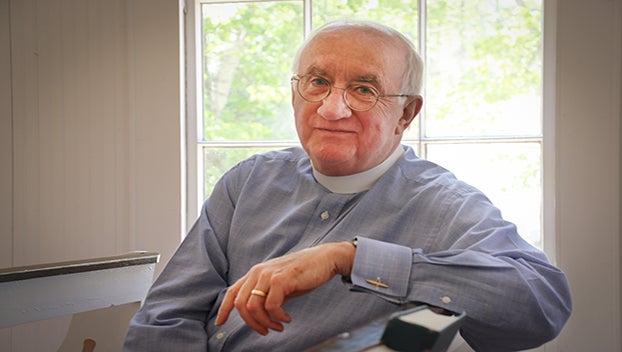Just who is a Christian?
Published 12:52 am Wednesday, October 5, 2011
I was taken aback when a dear Protestant woman questioned me as to whether those of the Catholic faith are Christians.
I could have replied, “Catholics were Christians long before there were any Protestants,” but I didn’t. I just said, “Yes, those of the Catholic faith are Christians.”
I have to wonder how many people are unsure, or unaware of, just who is a Christian.
It’s pretty simple: To be a Christian, one must be a follower of Jesus, accepting him as Christ, the Son of God, the Savior, the Messiah.
This means a lot of folks we might not suspect are Christians, including Catholics, Eastern Orthodox members (and all other orthodox churches), Protestants — including Methodists, Presbyterians, Lutherans, Episcopalians, Mormons (Church of Latter Day Saints), Jehovah’s Witnesses, Church of God and Church of Christ members, Seventh Day Adventists and Disciples of Christ. The list goes on.
It’s been more than 2,000 years since Jesus Christ founded the Christian faith. Although Jesus was a Jew, his people, for the most part, have doubts about him being the promised Messiah.
A little surprisingly, it was the Gentile population who accepted Jesus as Christ the Savior. But the first believers were Jewish by birth. Originally, Christianity was considered a sect of Judaism, a religion developed among the ancient Hebrews and characterized by the belief in one transcendent God. Gradually, the followers of Jesus came to think of their beliefs as a separate religion.
After Jesus was crucified, Christianity spread rapidly through the Roman Empire, becoming the official religion in the late 300s AD — the beginning of the Roman Catholic Church. Divisions occurred within the Christian faith soon afterward, with a schism that separated the church of Rome from the church at Constantinople (today Istanbul). In 1504, a portion of the Roman Catholic Church left to become the Eastern Orthodox Church.
By the 1500s, large groups were breaking away from the Catholic Church; these people were called Protestants, and since then Protestants have divided into many denominations and sects. All continue to be of the Christian faith. The word Christian, of course, is derived from the word Christ, as in Jesus Christ, meaning Messiah.
You may have noticed that the Old Testament of the Bible paints a picture of a wrathful God, one who demands allegiance to the point of killing one’s own brother if he refuses to accept the mighty Yaweh, which is the Hebrew word for God.
But in the first four books of the New Testament, Jesus’ teachings are full of compassion, and he introduces Christians to a softer, gentler, forgiving God. Jesus often taught in parables (short stories illustrating a moral attitude of religious principle).
Christ told his followers, “Whosoever shall smite you on the right cheek, turn him the other also.” The story of the prodigal son stresses God’s love and forgiveness when a sinner repents. And consider the account of the shepherd who searched until he found his one lost sheep.
Using everyday situations, Jesus expresses ideas such as the Kingdom of God, the proper use of wealth and the nature of prayer, all still relevant today. While the idea of the Golden Rule was not new to Jesus, he was the first to put it in a positive, rather than a negative, wording: “Do unto others as you would have them do unto you.”
What a perfect world it would be if people of all faiths followed and practiced this directive.
No doubt there are pastors, ministers, priests — perhaps even a rabbi — who deplore my simplistic approach to Christianity. I admit it; I’m no expert on the subject, but it seems fairly simple: Christians are those who are followers of Jesus, the Messiah.
And so, dear woman, I assure you that the people of the Catholic Church are, indeed, Christians — let there be no question in your mind.
Now I ask, are their Catholics who question if Protestants are Christians?
Polly Unterzuber may be reached by email at ka3erb@coastalnet.com.





